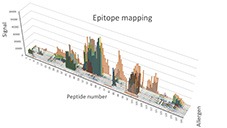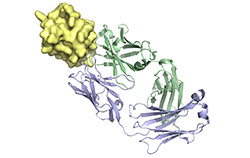Sensitization

The roll of dendritic cells
Adaptive immunity is induced through interactions and cross-talk between cells of innate immunity and cells of adaptive immunity. Key regulators of these events are the dendritic cells that assess the environment and orchestrate an adaptive immune response based on its interpretation of the nature of an incoming danger. Dendritic cells in most instances avake T cell immunity appropriate for any particular situation, immunity that in turn may stimulate a well-designed antibody response. At times dendritic cells induce an response that is disproportionate given the stimulus they receive. Such inappropriate sensitization and activation of adaptive immunity may result in autoimmune conditions or allergic disease.
Reseach focus at Department of Immunotechnology
The Department of Immunotechnology focuses it attention to the role of dendritic cells and its regulation of cells of adaprtive immunity in particular in allergic conditions, as well as to the nature and role of specific antibodies that induce or has the potential to resolve allergic disease.
Sensitization to chemicals
Dendritic cells are also key regulatory players in the development of sensitization to chemicals resulting in allergic contact dermatitis. In fact, activity of dendritic cells have been identified as one of four key events that shape such a reaction. The Department of Immunotechnology has focused extensive efforts into analysis of biological events associated to this key event, and to the development of diagnostic test that assess chemicals' ability to activate dendritic cells, thereby predicting their ability to act as sensitizers. Such tests hold great potential to replace animal models of chemical sensitization.



